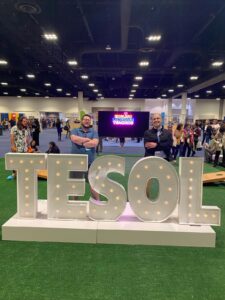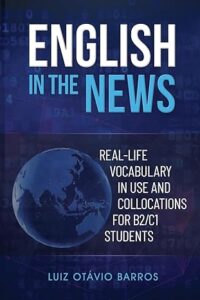2020 has been the year when professional development really went online. There were so many webinars, interviews, conferences, and other opportunities that it was hard to keep up with everything.
One thing I remember reading when building a business or developing professionally is the idea of staying on a low-information diet. Tim Ferriss basically makes the point that there’s so much information out there, and if we don’t focus on our attention on a few key areas it’s very easy to get distracted and try to learn about or do too much. I am personally very prone to this.
I find it hard to maintain a balance. On the one hand, I see the value of staying focused; it allows you to develop your skills in a niche and specialize. On the other hand, I think it’s important to remain curious and open to new ideas and learn about things outside of your area of expertise. I find focusing on teaching in one area restrictive and limiting.
In addition to this, we’re now doing almost everything online. Zoom fatigue is real, and it takes a toll on our mental health and physical health if we spend too much time in front of a computer. When Tim Ferriss wrote about the idea of a low-information diet, he probably had no idea how it would stand the test of time.
That being said, this year I’ve been trying to maintain that balance. Two great opportunities came up: a webinar with Penny Ur and an interview for ELT in Chile with Sandra Morales.
I’ve heard Penny Ur speak in person at conferences in Chile, and she’s amazing. She brings together research, grammar, vocabulary, and engaging yet simple and practical activities seamlessly. Each time I’ve heard her talk I’ve walked away with new ideas I can try in my classes.
This particular webinar was about speaking activities in online classes. She showed how to use matching activities to pair up verbs and nouns that are common chunks, then breaking them apart. “Throw a ball” was on chunk. What other things can you throw? She then invites her students to take turns saying things like “throw a bottle” and “throw a book”. She also suggests looking at what you can do with a ball. Some ideas are “hold a ball”, “bounce a ball”, “buy a ball”, etc. In addition to its simplicity, students can be creative and silly. They could say “eat a ball” or “throw a house”, and it also allows the teacher to introduce nonliteral phrases like “throw a party” or “be on the ball”.
I could go on and on about it, but that gives you an idea of what she presented. If you’d like to see the whole webinar, it’s available on Facebook at this link. I imagine it will be posted on YouTube soon too, so if that happens I will share the link once it’s up.
The other opportunity was an interview with Sandra Morales. She has done a lot of work and research in the area of technology in education in Chile and the United Kingdom, and hearing her perspective given the pandemic was really interesting. Reading her papers, she actually started researching online teaching five years ago. We talked about the digital divide, the idea of digital self esteem, and the importance of teachers experiencing online learning platforms and tools in their training as key to helping them develop the sills to teach online. If you’d like to watch the episode, you can do so on the ELT in Chile website or also on YouTube.
I find opportunities like these really valuable, as I feel that I can always learn something from everyone I meet in life. Despite that, we face a challenge moving forward. How do we learn from others, build community, find professional development opportunities that are meaningful with so many of them out there, and maintain our energy going into a new year of online learning and teaching?
I don’t know the answer, but I think it’s something we’re all going to be working through in this coming year.


